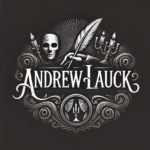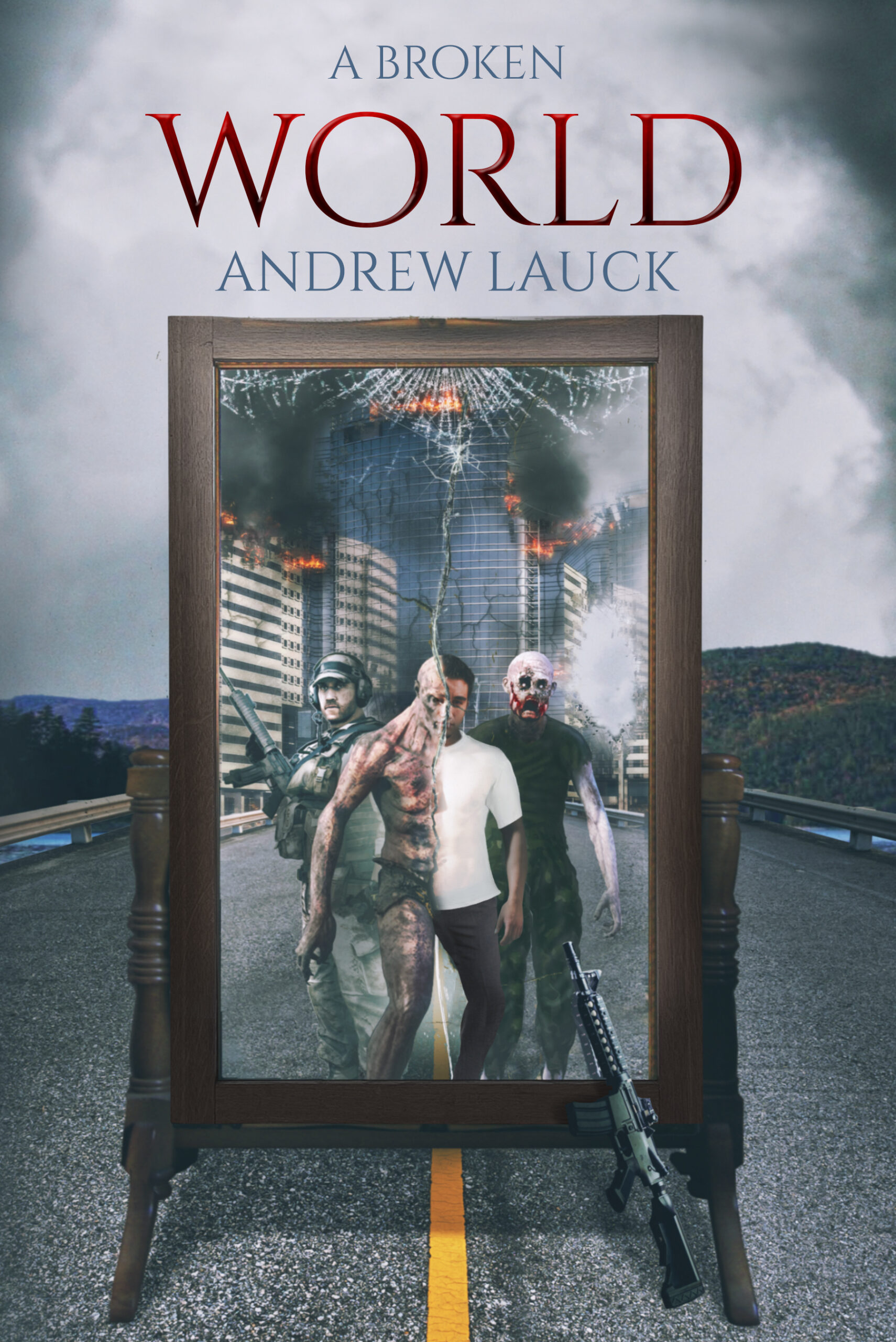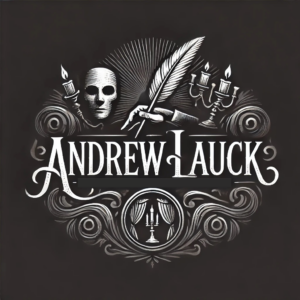Getting Started: Tips to Begin Your First Novel
A Blog by Andrew Lauck
Starting a novel can feel like a daunting task. The blank page stares back at you, full of possibility, but there’s also uncertainty and the knowledge that you need a whole book by the end of it. How do you begin? What should your first steps be?
As someone who has navigated the journey from idea to completed manuscript multiple times, I understand the challenges and fears new writers face when embarking on their first novel. The good news is that, like any journey, writing a novel starts with a single word.
Here are some practical tips to help you get started on your writing adventure.
Find Your Inspiration
Before you write, it’s important to find the inspiration that will drive your story. Inspiration can come from anywhere—a news article, a personal experience, a dream, or even a question you can’t get out of your head. What if the world as we know it ended tomorrow? What if someone’s darkest secret was revealed? These “what if” scenarios can be a powerful starting point for a novel.
Spend time thinking about what excites you, what you’re passionate about, or what you’re curious to explore. The key is to find an idea and a world that you can live with for months or even years, as writing a novel is a long-term commitment. Once you have that spark, nurture it. Jot down notes, brainstorm ideas, let your imagination run wild. This early stage is all about exploration, so don’t be afraid to think big.
Outline Your Story
While some writers dive into their first draft without an outline, having a basic structure in place can be incredibly helpful, especially for first-time novelists. An outline doesn’t have to be overly detailed; it can be as simple as a few bullet points or a more detailed chapter-by-chapter breakdown.
Outlining helps you map out the major plot points and ensures you have a clear direction for your story. It’s a tool to keep you focused and motivated, especially during those times when you might feel stuck. However, remember that an outline is not set in stone. As you write, you may find your story taking unexpected turns, and that’s okay. The outline is there to guide you, not to confine you.
I wrote my first book without an outline in place at the start. After twenty chapters, though, I wrote down some notes of the direction the story would take. Of course, by the time I reached the end of the first book, the characters decided to change my plans and begin a story of their own, which led to such a powerful sequel. Outlining can help, but prepare to cut your characters loose and let them roam free.
Create Compelling Characters
Speaking of characters, they’re the heart of any great story. Don’t get me wrong, plot is everything, but readers connect with characters who feel real, who have desires, flaws, and growth throughout the story. These characters will take the reader on a journey of their own and keep them coming back for more.
Take the time to develop your main characters before you start writing. Consider their background, their motivations, and their relationships with other characters. One effective technique is to create character profiles. These can include basic information like age, appearance, and occupation, but also deeper details like their fears, dreams, and what drives them.
Understanding your characters on this level will make it easier to write them consistently and convincingly. Most importantly: Don’t forget your antagonist. A well-rounded villain or opposing force can add depth to your story and provide the necessary tension to keep readers engaged. Remember, characters don’t have to be likable, but they do need to be interesting.
The best antagonists are the heroes of their own stories, after all. If you’re stuck on beginning your novel, as many of my students either have trouble with the intro or the end, consider the antagonist as the main character. How does the protagonist get in their way? This creates instant conflict and the book can write itself.
Set Realistic Writing Goals
Writing a novel is a marathon, not a sprint. Setting realistic goals can help you make steady progress without burning out. Instead of aiming to write your entire novel in a month, break it down into manageable chunks. For example, aim to write a certain number of words each day or week. This could be as little as 300 words a day—what matters is consistency.
Don’t jump on the hype train of NaNoWriMo and expect to write 50,000 word in a month. It can be exhausting and make you hate everything about writing, which is the opposite of what you want. Given, I received the advice to never write a book you don’t love, because you’ll hate it by the end, and that does hold some rationale.
Consider using a writing tracker or journal to log your progress (I’ve never done it, but it works for some people). Seeing your word count grow can be incredibly motivating and can help you stay on track. Also, don’t be too hard on yourself if you miss a day or fall behind. It’s the same with the gym. Life happens, and writing should be an enjoyable process, not a source of stress.
Start Writing—Don’t Wait for Perfection
One of the biggest obstacles new writers face is the pursuit of perfection (Being a perfectionist, I especially relate). It’s easy to get caught up in revising your first chapter over and over, trying to make it flawless before moving on. However, this can stall your progress and lead to frustration.
Instead, give yourself permission to write a messy first draft. The goal of the first draft is to get your ideas down on paper, not to create a polished masterpiece. You can—and will—revise and improve your work later. Embrace the imperfections of your first draft as part of the creative process. The important thing to realize is that you can’t edit what’s not there.
I’ll say it again: YOU CAN’T EDIT WHAT’S NOT THERE.
If you find yourself stuck, try setting a timer for a short writing session, say 15 or 30 minutes, and just write without stopping. This can help you push through blocks and get your creativity flowing. For me, if I’m stuck, I open a blank document and attack the scene/chapter/whatever from scratch without even thinking of the outline. In many cases, this has led to a much stronger part of the novel.
Embrace the Process of Discovery
As you write, you’ll discover more about your story, your characters, and even yourself. Sometimes, the story you end up with is quite different from the one you initially envisioned, and that’s part of the magic of writing. Be open to the changes that occur as your story evolves.
Don’t be afraid to explore different angles, experiment with different narrative voices, or shift the direction of your plot. Writing a novel is an organic process, and sometimes the best ideas come when you least expect them.
Seek Feedback Early On
Once you have a portion of your novel written, consider sharing it with a trusted friend, writing group, or mentor. Early feedback can be invaluable, helping you identify strengths and areas for improvement. It can also provide the encouragement you need to keep going.
However, be selective about who you seek feedback from. Choose someone who understands your genre and is able to give constructive criticism. Remember, feedback is meant to help you grow as a writer, so be open to suggestions while staying true to your vision.
You also don’t want “yes men” as your reading circle. The response of, “I liked this” or “This is really good” should be the bane of your existence, because those words are useless to your process. Get people that will dismantle your work and point out flaws constructively (Or not, but you’d better have thick skin for that).
Dedication and Persistence
Writing a novel is a long and sometimes challenging journey, but persistence is key. There will be days when the words flow effortlessly and days when you can barely string a sentence together. The important thing is to keep going. Every writer faces self-doubt, writer’s block, and moments of frustration. What sets successful writers apart is their ability to push through these challenges.
That doesn’t mean you have to write every day, because you can’t force it, but it does mean staying dedicated to your craft. If you get stuck, use one of the aforementioned tactics, read a book in your genre, or look up other ideas for overcoming writer’s block. It could even be something as simple as eating, because I can’t tell you how many times I’ve been writing for hours and forgotten to eat.
If you find yourself losing momentum, revisit the reasons why you wanted to write this novel in the first place. Remind yourself of the excitement and passion you felt at the beginning. Sometimes, taking a short break to recharge or working on a different scene can help reignite your creative spark.
Enjoy the Journey
Finally, remember to enjoy the process of writing your first novel. It’s a journey filled with highs and lows, but it’s also incredibly rewarding to sit back at the end and stare at the finished product. Sure, you’ll have the rounds of edits, queries, potential agents and publishers to worry about later, but the first time you finish that last chapter and find out the end of your character’s journey is, ironically, indescribable.
Whether you’re writing to share a story with the world, to fulfill a personal dream, or simply for the joy of creating, let that motivation carry you through. Celebrate the small victories, like finishing a chapter or hitting a word count milestone. These moments of progress are worth savoring, and they’ll be the only thing that keeps you going sometimes.
Writing your first novel is an adventure that requires dedication, patience, and a willingness to learn. Hopefully, this advice can help you start your writing journey and get you on your way to breathing new life into your characters.


